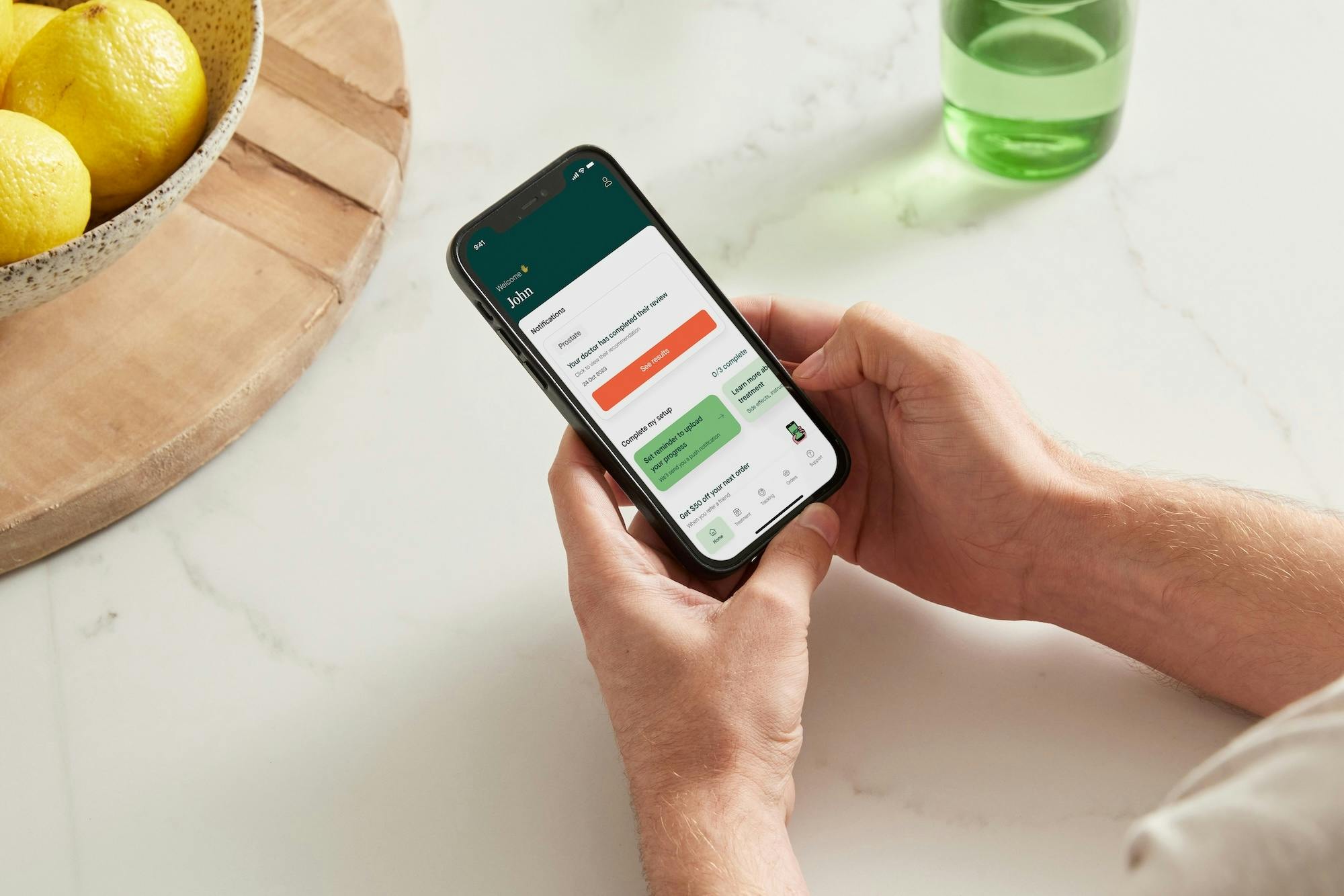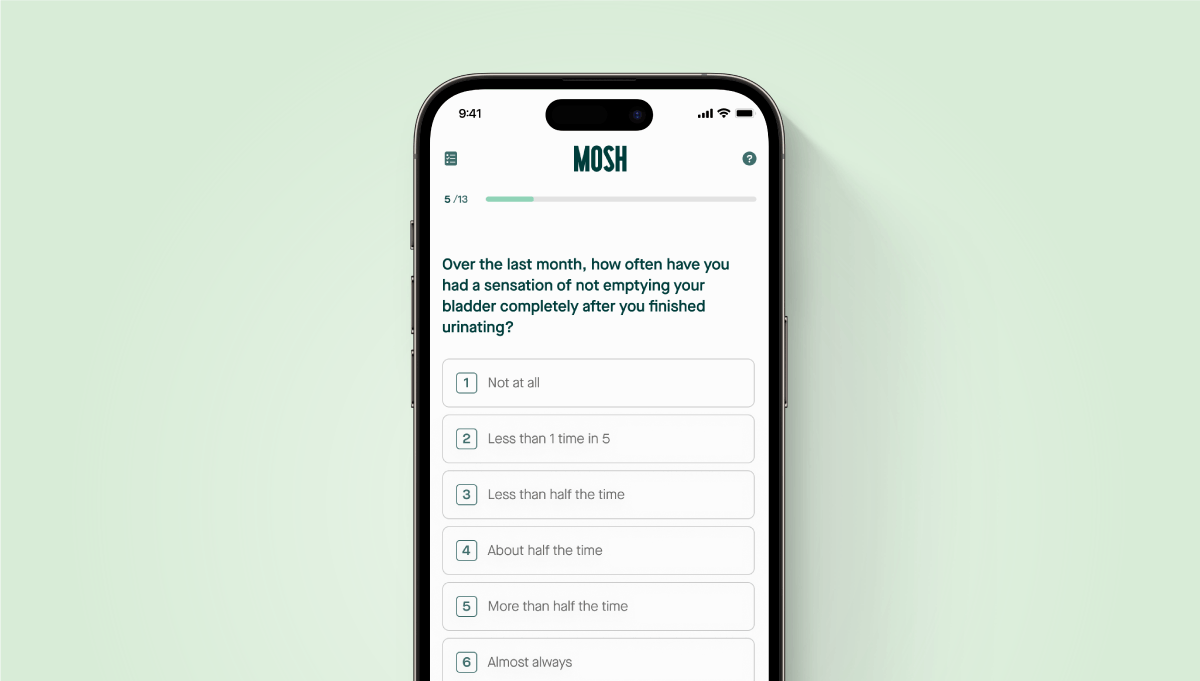
Dr Christopher Love
Urologic and Prosthetic Surgeon
MBBS, FRACS
"Urological Surgeon"
*Available for eligible patients only. The health quiz issues an International Prostate Symptom Score (IPSS), and is not a comprehensive health check


Put your prostate health in your own hands.
Frequently feeling the urge to urinate? That's not always a normal part of getting older. If this is happening to you and you're over 50, a routine prostate check could help you determine if you have an enlarged prostate or benign prostatic hyperplasia (BPH).
Recognising prostate problems and the early signs of benign prostatic hyperplasia is essential for effective management.
At Mosh, you can get prostate health checks, initial online assessments and specialist referrals, all in the one place.
Start Your Prostate Health Assessment Now



Could BPH be the reason for my urinary symptoms?
You might have an enlarged prostate, otherwise known as benign prostatic hyperplasia (BPH). This is when your prostate enlarges and squeezes down on the urethra, affecting bladder function.[1]
Initially, benign prostatic hyperplasia symptoms may be mild to moderate but can worsen overtime if untreated, impacting quality of life and potentially leading to complications such as bladder, urinary tract, or kidney issues. [2]
Less than half of all men with BPH actually have symptoms. [2]

What are the main symptoms of an enlarged prostate?
Prostate enlargement can impact or block the bladder neck, resulting in a frequent need to urinate. [3]
Other symptoms of enlarged prostate include [4]:

How do I know if I have an enlarged prostate?
It's important to understand the differences between prostate cancer and benign prostatic hyperplasia for proper diagnosis and treatment.
You just need to complete a quick quiz to give your Mosh health practitioner all the information they need to assess your symptom score.
Your health practitioner will then provide you with a free initial assessment for your GP.
And, if deemed appropriate, they can also refer you to a local urology specialist. All from the comfort of your home!
Take the quizFAQs
Yes, your initial health practitioner assessment & specialist referral (if eligible) is completely free!
You’ll get your IPSS (International Prostate Symptom Score) to help assess the severity of your symptoms [6].
Depending on your IPSS score, your Mosh health practitioner may be able to refer you to a local urology specialist. If your Mosh health practitioner believes you would benefit from a visit with your regular GP instead, they’ll send you an initial review of your IPSS score to give your GP all the information they need to sort out your treatment plan.
We worked with Mosh doctors to create the Ultimate Guide to BPH see link above.
So you don’t have to remember every tiny detail! Mosh’s free symptom tracker will give your doctor an accurate overview of how your symptoms are presenting.

Facts about enlarged prostates

Dr Christopher Love
Urologic and Prosthetic Surgeon
MBBS, FRACS
"Urological Surgeon"
of all men will have an enlarged prostate by age 60 [7]
What is Benign Prostatic Hyperplasia (BPH)?
BPH is a condition that occurs when your prostate enlarges and squeezes down on the urethra, affecting bladder function.
What are the main symptoms of BPH?
An enlarged prostate can impact or block the bladder, which means frequently needing to urinate is a common symptom.
How common is Benign Prostatic Hyperplasia?
BPH affects up to 70% among men aged 60-69 [5]
Enlarged prostate affects up to 80% of men older than 70 [5]
What can I do about it?
While BPH isn't linked to cancer, the symptoms of BPH can be similar to those of prostate cancer. So, it's essential to check in with your doctor if you notice any changes. Reach out to a Mosh health practitioner to get your initial online assessment. Take the quiz
Want to find out more? We worked with Mosh doctors to create the Ultimate Guide to BPH.
Read the guide